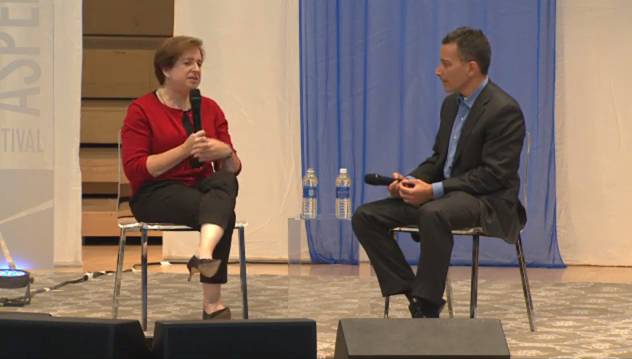Justice Kennedy in Lawrence v. Texas:
It must be acknowledged, of course, that the Court in Bowerswas making the broader point that for centuries there have been powerful voices to condemn homosexual conduct as immoral. The condemnation has been shaped by religious beliefs, conceptions of right and acceptable behavior, and respect for the traditional family. For many persons these are not trivial concerns but profound and deep convictions accepted as ethical and moral principles to which they aspire and which thus determine the course of their lives. These considerations do not answer the question before us, however. The issue is whether the majority may use the power of the State to enforce these views on the whole society through operation of the criminal law. “Our obligation is to define the liberty of all, not to mandate our own moral code.” Planned Parenthood of Southeastern Pa. v. Casey,505 U.S. 833, 850 (1992).
Justice Kennedy in United States v. Windsor:
The avowed purpose and practical effect of the law here in question are to impose a disadvantage, a separate status, and so a stigma upon all who enter into same-sex marriages made lawful by the unquestioned authority of the States. The history of DOMA’s enactment and its own text demonstrate that interference with the equal dignity of same-sex marriages, a dignity conferred by the States in the exercise of their sovereign power, was more than an incidental effect of the federal statute. It was its essence. The House Report announced its conclusion that “it is both appropriate and necessary for Congress to do what it can to defend the institution of traditional heterosexual marriage. . . . H. R. 3396 is appropriately entitled the ‘Defense of Marriage Act.’ The effort to redefine ‘marriage’ to extend to homosexual couples is a truly radical proposal that would fundamentally alter the institution of marriage.” H. R. Rep. No. 104–664, pp. 12–13 (1996). The House concluded that DOMA expresses “both moral disapproval of homosexuality, and a moral conviction that heterosexuality better comports with traditional (especially JudeoChristian) morality.” Id., at 16 (footnote deleted). The stated purpose of the law was to promote an “interest in protecting the traditional moral teachings reflected in heterosexual-only marriage laws.” Ibid. Were there any doubt of this far-reaching purpose, the title of the Act confirms it: The Defense of Marriage.
I suppose these “profound and deep convictions” identified by the overwhelming majority of all branches of government in 1996 (the same year Prop 2 was passed in Colorado), which were not “trivial” in 2003 (Lawrence), are now trivial in 2013 (Windsor). The times have changed.
I’ll have more on this later.
Do read Unconstitutional Animus by Professor Pollvogt, which is especially timely after Windsor.
